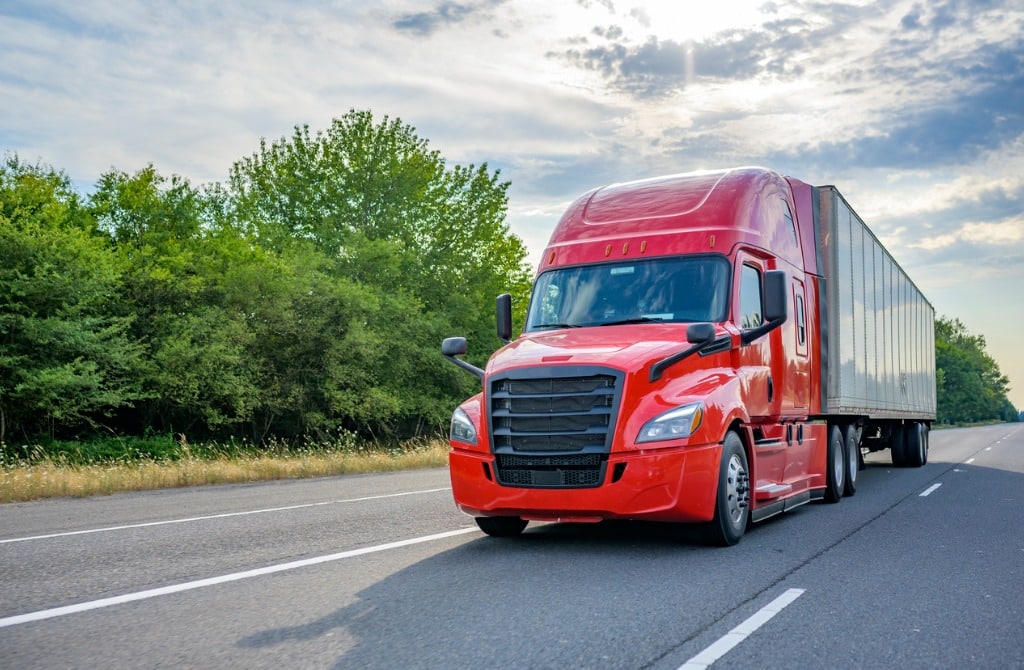Commercial trucks help industries and other fields of interest in many ways, and each type of commercial truck has its own specialty that it can do better than any other type of vehicle.
Below are described some of the most commonly used commercial trucks, as well as the industries they’re generally used in and how they provide value to those industries. Some of these vehicles will be very familiar to you, while others may be less well known. However, all serve an instrumental purpose and make work much easier in their given niche.
Dump trucks
Whenever large loads of topsoil, rock, or gravel have to be moved, dump trucks are the workhorse vehicles that get called upon. They have powerful hydraulic systems that help unload the materials being transported and are built to withstand a great deal of weight and general punishment around construction sites. They are used commonly in construction, landscaping, paving, and waste removal.
Heavy haulers
As their name would suggest, these heavy-duty trucks are called upon whenever super heavy loads are involved and a great deal of hauling power is required. In fact, a lot of the time, the loads being moved by these transports are actually too wide for standard roads, and an escort must be provided to alert other motorists to the oversized load being hauled.
It is generally necessary for drivers of these trucks to have special permits that attest to their expertise in operating such vehicles. Heavy haulers are designed to carry construction equipment, paving equipment, cranes, and other super-heavy loads.
Refrigerator trucks
Grocery store chains and supermarket businesses frequently employ these trucks to transport perishable goods from one part of the country to another. Goods that must remain chilled or frozen must be transported in these specialized vehicles so that no degradation will occur to the valuable products inside. Without these vehicles, it would be impossible to transport perishable goods across the country while keeping them fresh.
Recommended Read Ways That Fleet Vehicle Upfitting Can Improve Your Operations
Garbage trucks
Everyone has seen these advantageous and helpful vehicles in their neighborhood, carting away waste each week and relocating it to a nearby landfill. These trucks are equipped with heavy-duty hydraulic systems that provide the power to compress waste and allow for more to be stored on the truck.
They are also generally fitted with powered systems capable of lifting trash cans, emptying them into the reservoir area, and replacing them on the sidewalk or roadside. Without garbage trucks, refuse would quickly pile up all over the country and make the environment both visually and aromatically repugnant.
Tankers
Tankers are very versatile trucks that generally carry some type of fluid to a specific destination. In many cases, those fluids might be water, milk, crude oil, chemicals, and sometimes even orange juice. Depending on the specific type of cargo a tanker carries, it may need to be outfitted with special equipment designed to handle that specific type of load.
Tankers are vehicles that have a long, wide tube mounted on the rear of a truck to transport some kind of fluid cargo, and this long tube is placed where you might expect to see a trailer. The most common usage for tanker trucks is for transporting oil, given the fact that the oil industry is so prevalent in the United States.
Tractor-trailers
This is another kind of commercial truck that just about everyone has seen on the highways of America since they are one of the primary methods for transporting all kinds of goods for a wide range of industries.
These are also sometimes referred to as ‘eighteen wheelers,’ ‘big rigs,’ or ‘semi-trailers,’ because they require eighteen wheels for normal operation, and of course, they are quite large vehicles. Tractor-trailers have enough space to transport a large volume of almost any kind of cargo between two points, and that makes them one of the most cost-effective ways of moving goods from place to place.
Recommended Read Commercial Vehicle Maintenance Checklist: Keep Your Drivers Safe and Happy
Cement mixers
Cement mixers serve an invaluable purpose by pre-mixing cement on the way to a construction site so that fresh cement is ready to be poured when they arrive on site. This can be really important, especially if the construction crew is on a tight schedule and needs the cement to be poured as soon as the truck arrives.
With a large rotating cylindrical body, the cement mixer can thoroughly mix the cement while in transit, so it is immediately ready to be poured on-site. Cement mixers are often used to pour foundation walls, driveways, sidewalks, and other structures that require a hard and durable surface.
Flatbeds
Flatbed trucks get their name because the trailer behind them is completely flat, capable of transporting logs or other heavy loads.
Anything that can be firmly strapped onto the flatbed area can be safely transported, and that makes flatbeds ideal for moving construction materials like siding, shingles, bricks, concrete blocks, and pipes of any size. These are very useful to the construction industry and any other business that needs to transport materials like these.
Upfit your commercial fleet with help from TCS Upfitting
TCS Upfitting employs a group of specialists who are adept at upfitting emergency vehicles, commercial vehicles, ambulances, fire trucks, and police cruisers to provide them with additional functionality needed in their particular fields.
The additional features incorporated into these vehicles allow them to be much more effective at accomplishing their routine and emergency tasks, whatever they might be.
We specialize in upfitting vehicles with features such as lighting and electronics, interior equipment like window tinting, ignition security systems, prisoner transport systems, equipment trays, and drone command centers. We can also upfit your vehicle with exterior features such as push bumpers and Tonneau covers.
Our services could benefit operators of emergency vehicles or law enforcement personnel because they can allow you to perform your duties more effectively, safely, and efficiently.


